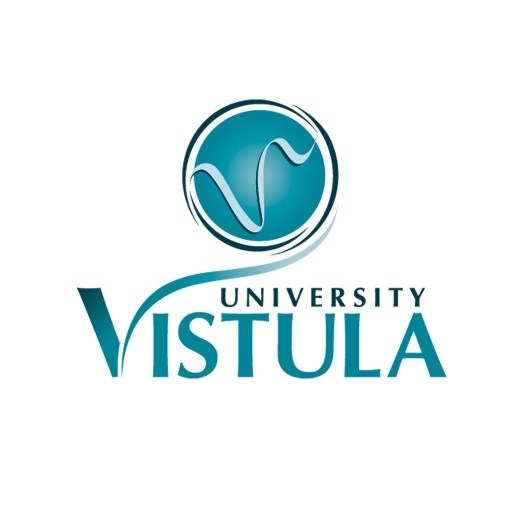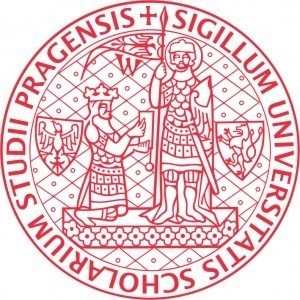Photos of university / #uniessex
International Economics at the University of Essex offers a comprehensive and research-informed curriculum that prepares students for careers in global economic analysis, policy-making, finance, and international business. The programme is designed to develop students’ understanding of economic theories and their practical application in real-world international contexts. Throughout the course, students will explore core topics such as international trade, global financial markets, economic development, and the impact of globalization on national economies. Emphasising a quantitative approach, the programme equips students with essential skills in economic modelling, data analysis, and critical thinking, enabling them to interpret complex economic data and contribute effectively to policy discussions.
Delivered by expert academics who are actively engaged in international economic research, the programme combines theoretical knowledge with practical skills through case studies, seminars, and project work. Students will also have opportunities to learn about economic institutions, trade policies, and global economic challenges faced by governments and multinational corporations. The course encourages critical engagement with current issues such as trade wars, economic sanctions, climate change impacts on economies, and emerging markets’ growth strategies.
The programme also provides pathways for specialisation in additional areas including international finance, development economics, and regional economic integration. Students benefit from state-of-the-art facilities, dedicated econometrics labs, and access to extensive academic resources. With strong links to policy institutions, financial firms, and international organisations, graduates are well-positioned for employment in government agencies, consulting firms, international organizations, or pursuing postgraduate study. The University of Essex supports international mobility, and students may have opportunities for placements and exchanges to enhance their global perspective.
By choosing International Economics at Essex, students will gain a solid understanding of how economies operate across borders, develop critical analytical skills, and be prepared to make meaningful contributions to solving global economic challenges. The programme aims to foster innovative thinking, ethical awareness, and a global outlook, preparing graduates for successful careers in the interconnected world economy.
The International Economics undergraduate degree at the University of Essex offers students a comprehensive understanding of the global economy, equipping them with the analytical skills and knowledge necessary to navigate complex international markets. The programme delves into core economic theories and models, providing a solid foundation in microeconomics, macroeconomics, and quantitative analysis. Students explore key issues such as international trade, global financial markets, economic development, and the impact of economic policies on different countries.
Throughout the course, students engage with real-world case studies and contemporary economic challenges, encouraging critical thinking and practical problem-solving abilities. The curriculum emphasizes the importance of understanding economic relationships across borders, including the effects of globalization, trade agreements, and international institutional frameworks like the World Trade Organization and International Monetary Fund.
In the foundation year, students build essential skills in mathematics, statistics, and the basics of economic analysis, preparing them for more advanced study in subsequent years. As they progress through the programme, learners have opportunities to specialize in areas such as international finance, development economics, and economic policy, tailoring their education to their career interests.
The programme also offers opportunities for work placements, internships, and study abroad exchanges, giving students valuable practical experience and international exposure. Graduates of the International Economics degree are well-equipped for careers in banking, finance, government, international organizations, consulting, and more. They develop not only a strong foundation in economic theory but also practical skills in data analysis, policy evaluation, and strategic decision-making. With dedicated academic support and access to extensive resources and research facilities, students are prepared to impact the global economy positively and pursue further academic or professional pathways.
Typical entry requirements for the International Economics undergraduate program at the University of Essex include a minimum of two A-levels at grade C or above, or equivalent qualifications such as International Baccalaureate, BTEC Extended Diploma, or other national qualifications. Applicants are generally expected to demonstrate competence in mathematics and analytical skills, often evidenced through GCSE mathematics at grade 4/C or above, or equivalent. For international students, being proficient in English is necessary, usually indicated by a minimum IELTS score of 6.0 overall, with no component below 5.5, or an equivalent English language qualification accepted by the university.
The foundation year program is designed for students who do not meet the direct entry requirements for the bachelor's degree. Successful completion of the foundation year with the required grades typically enables progression to the full undergraduate course. The foundation year curriculum covers essential skills in economics, mathematics, and academic techniques, ensuring students are well-prepared for degree-level study.
Applicants with other qualifications or relevant work experience may also be considered through the university’s conditional offer process. The university values diverse educational backgrounds and encourages applications from mature students or those with non-traditional qualifications, assessing each application on a case-by-case basis. Entry requirements may be slightly varied depending on the applicant’s country of origin; therefore, prospective students are advised to consult the university’s official prospectus or admissions website for the most accurate and detailed information.
Candidates should also submit a personal statement outlining their interest in economics, motivation for studying the course, and any relevant skills or experience. References from teachers or previous educators may be required to support the application process. The program seeks students with strong analytical abilities, quantitative skills, and a keen interest in global economic issues.
Additional criteria may include interview or assessment tasks, particularly for applicants whose educational background does not align directly with the traditional entry points. The University of Essex promotes an inclusive environment and provides guidance and support for admitted students to help ensure their success throughout the course. Overall, prospective students are encouraged to visit the university’s official admissions webpage for specific and up-to-date entry criteria related to the International Economics program, including the foundation year pathway.
The financing of the International Economics undergraduate program at the University of Essex is structured through a variety of funding options available to prospective students. The university offers a range of scholarships and financial aid packages designed to support both domestic and international students. Domestic students may benefit from government-backed loans and grants, such as the Student Loans Company funding, which covers tuition fees and living costs. International students are encouraged to explore scholarship opportunities offered directly by the university, including the Essex Excellence Scholarships, which provide partial tuition fee waivers based on academic merit. Additionally, students can apply for external scholarships from governmental and non-governmental organizations, depending on their country of origin and eligibility criteria.
The university also provides guidance and support for students seeking part-time employment opportunities during their studies, helping to supplement their income. University-funded work placements and internships are available in collaboration with local businesses and international organizations, offering valuable work experience alongside financial support. Tuition fees for the International Economics program are competitive, reflecting the university’s commitment to accessible higher education; precise fee amounts are reviewed annually and vary depending on the student’s residency status. Payment options include annual, termly, or lump-sum payments, with flexible installment plans available.
Moreover, students are encouraged to consider personal savings, family assistance, and external funding sources to finance their education. The institution’s financial services department provides comprehensive advice on budgeting, financial planning, and application procedures for financial aid, ensuring students are well-informed about available resources. For international students, visa applications often include provisions for funding and scholarships, which can assist in covering tuition and living expenses. Overall, the financing of the International Economics program is designed to be accessible and supportive, leveraging a combination of internal and external funding options to facilitate student success and academic achievement.
International Economics at the University of Essex offers a comprehensive curriculum designed to equip students with a solid understanding of economic theory, policy analysis, and real-world application. The program incorporates core subjects such as microeconomics, macroeconomics, and quantitative methods, ensuring students develop analytical skills essential for understanding global economic issues. It also covers specialized areas like international trade, finance, economic development, and institutions, enabling students to grasp the complexities of the global economic environment. The foundation year serves as an introduction to essential skills and knowledge, preparing students who may not yet meet direct entry requirements for the standard program. This year emphasizes mathematical methods, introductory economics, and academic skills, ensuring a smooth transition into degree-level studies. Throughout the course, students have opportunities to engage with current economic debates, undertake research projects, and participate in internships or study abroad programs, which enhance employability and practical understanding. The program is designed with an emphasis on employability, equipping graduates with skills valued by employers in finance, government, international organizations, and the private sector. Teaching methods include lectures, seminars, workshops, and individual supervision, complemented by access to extensive online resources and databases. The university's strong links with governmental agencies, international organizations, and industry provide networking opportunities and placements that can be pivotal for career development. Students graduate equipped with critical thinking, problem-solving, and communication skills, making them well-prepared for roles in economic analysis, policy-making, consultancy, or further academic research. The University of Essex supports a diverse student body, fostering an inclusive learning environment with dedicated academic support and career services to assist students throughout their studies and after graduation.









